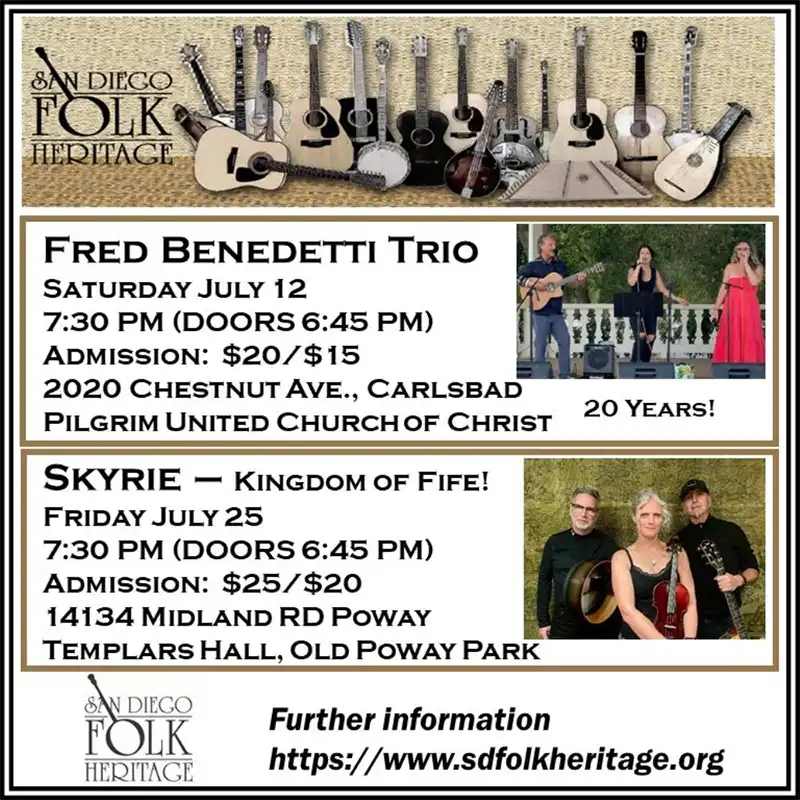Cover Story
Tori Roze: Raise Yourself Up!
There are few sounds as satisfying as the husky laugh of Victoria Roze, always skimmed down to the more down-to-earth, “Tori” on her records. “It is about to get ugly up in here,” she trails off as she sits down to her coffee and cozies in for some probing. “I got this for Jody.” As it turned out, Tori would pick a little something up for her wife, all three times we sat down for this article.
“Love Heroin” from From the Hip (2011)
Every day I want to smoke your love
Every night I want to pour you in my cup
Freckled Child, you make me want to tap my veins
But I’ve gotta get myself off of your Love Heroin.
Not surprising that this newlywed’s mind is in a giving state, Tori Roze is a staple of thoughtfulness in the San Diego music scene, booking shows and contracting musicians for well over a decade. Tori is so well woven into the fabric of San Diego, it almost seems as if we take her for granted as one of the most talented of the talented. A force of nature on stage, only the most confident musicians find themselves working with an always honest, always demanding Roze. And while her name is often listed in the upper echelon of performers, her work remains often overlooked by the powers that be.
Regularly found in residence in venues like Bar Pink and Martini’s Above Fourth, Roze is one of the busiest singers you’ll meet, singing over 250 shows last year alone. Blending Funk, and Neo Soul, Roze’s full band, Tori Roze and the Hot Mess find their roots in jazz. While Roze’s massive voice can be found peppered with the flavors of Ella Fitzgerald’s whimsy, Amy Winehouse’s swagger, Michael Jackson’s cadence, and the soulfulness of Erykah Badu, this child of the ’90s can even be heard borrowing from Gwen Stefani (circa No Doubt) with hints of Bjork, tying it all in for good measure. Roze’s style defies convention and doesn’t fit well into any single genre, making it brilliant but difficult to place on the radio or in traditional award categories.
A San Diego native, Roze has been performing most of her life. Born into a family of artists, Tori started heavily performing with her father, Chrystophzer R., an accomplished actor and poet. “There were a lot of shenanigans going on between my parents when I was growing up, so we went back and forth a little. I didn’t really start performing with my mom until I was an adult.” Lee Clark (AKA Lee Carpenter), Tori’s mother, covers flute and vocal harmonies in the Hot Mess, bringing in an occasional classical flare to their vocal mix. “I love working with my mom. It’s such a gift to be able to call her up and make her come work on songs with me. In my song “Show Me,” I had a plan to showcase flute. My mom pounded out that song with me in less than 45 minutes.”
An avid traveler, when asked if her family is the reason Roze has remained in San Diego, she offers a typical unrestrained answer. “I have a love/hate relationship with San Diego. I have a love/hate relationship with art, too. I love both things so much, I want more for them.” Not one to mince words or suffer fools, Roze has developed a bit of a reputation for telling it like it is. “ I don’t want to call anyone out, I want to call them up. I want to make the world a better place, a more beautiful place. I want back what I put in.” A larger than life personality, one can understand why this artist finds it difficult to find other artists that match her output. “I’m constantly working on myself and my art, when people aren’t growing, aren’t pushing themselves, I can’t ignore it. I don’t want to live in New York, that life is not for me. But, I like the toughness of New York. Nobody is there to blow sunshine up your butt.” With a grit that shows both in her personality and musicality, Roze has no tolerance for imposters.
Roze speaks from experience, having hailed from Boston Conservatory and the University of California, San Diego where she studied theater and performance. She has also served as an art model for 15 years, a gig which has garnered her original artwork for the covers of her last three albums. Roze expresses an interest in returning to theater, sighting a broken system that she has come to see for what it is. This year, she auditioned for the Royal Academy of Dramatic Arts in England. “That’s the other half of my heart. I’m pretty jaded by the weak work I’ve been seeing for a decade. But, there’s hope. This year I saw a shift. I’ve seen a bunch of great productions and its rekindled my want to create better work from the back end.” Weary after being promised several roles and later having them retracted, Tori is eager to improve the quality of life for actors and singers who have difficulty getting cast in local productions. “The theater companies keep recycling the same handful of people. It’s a vicious cycle that lacks funding and thus exploits performers who will work for little or no pay. There was a time when I performed regularly at Diversionary Theater, but they can’t afford to bring me back, and a gal’s gotta eat.”
After playing with her band for ten years, Tori finds gratitude in collaboration. “I work with the best players in town. And I have all of this vision. But then, it’s like I didn’t know I had all of this other vision until my bandmates show up with their individual visions. Next thing you know it’s like, BAM! That’s motherf’in tasty music!” After a lifetime of creating in her hometown, Roze lauds San Diego as an incubator for her creativity.
Having just released her third album, Baggage Claim, Roze’s latest compilation has a little something for everyone. Everything from stripped down singer-songwriter tracks like “Ride the Wave,” to the gospel-saturated tunes like “Oh Lord, Please.” For those who like to dance as they listen, a samba in “Show Me” and snappy pocket in “Trust Love” assures some wiggle in even the stiffest human’s rear end.
Dance has consistently been part of Roze’s performances. A student of the Lindy Hop and a lover of movement, dance is a common expression for this songstress. “I have a really hard time holding still to be honest; I’m being moved by the spirit.” No stranger to breaking a sweat, Tori Roze can almost always be seen breaking it down on the dance floor, be it between verses or accenting guitar licks with her feet. Her live performances are heartfelt, focused, and mesmerizing.
“I am at my best self music making, or at least I try to be. Every year, I add new tricks and techniques to raise up the performance.” With methodical attention to each note and phrase, Roze delivers memorable performances for her audience every time she hits the stage, citing her awareness of a need to balance the responsibility of both the performer and the audience member. “I have high expectations for my audience. I want them to be part of what is happening. I want you to get off your phone and look up. Show up expecting to be affected. Because I’m there to take you on a ride of emotions. I want you to feel them all. And if you are distracted by your phone, or worrying about capturing it on social media, you can’t connect with the band. Call me lots of things, but don’t call me predictable. Be present or you’re missing it.”
Demonstrating what she desires in good art, Roze makes an effort to be an informed performer. “I am an avid consumer of art, especially music. It’s not about technical gymnastics, it’s about whether or not you give the audience your heart. Think about how hard it is to compete with modern life. You have to get up off the couch, disconnect from Facebook, Netflix, and Postmates, and get out there to be in the audience. Both the artist and the audience have to challenge themselves to engage. That’s the difference between commercial art and art from the heart. You have to trust each other to go on a one-of-a-kind experience. Live performance is my favorite place to make art because there aren’t any do-overs.” Not one to pander to or underestimate her fans, Roze says she needs an audience. Never short on words, Roze is a master of expression. She considers communication and a need to be seen as necessities to survival, stating, “If you feel something too strongly to speak it, sing it. If you feel it too strongly to sing it, dance it. I have a message, and I don’t dumb down my lyrics or performances for the masses. Artists need to remember that. You are inviting someone into your art, into your mindset, not the other way around. Ask yourself, do you want your art to relate to people who actually relate to you or to people who think they relate to you after you genericized your lyrics?
“The music you make heals you. Through your healing, you can offer the audience healing too.” Living her message through and through, Tori echoes a demand of authenticity in everything she does. All three of the band’s albums have been self-produced in an effort to preserve the heart of the music. “I want to tell my stories. I want to connect deeply to the material. And I don’t want to compromise those values. At the end of the day, I know I can sleep at night because I make art that I like, not just commercialized top-40 versions of my story.
“You know yourself better than anyone else knows you. Who better to tell your story? Know yourself and amplify your gifts. The more you can be you, the better the world will be.” Finding freedom in her art, Tori has found herself in her songs. “Sometimes you write what you need to hear. It can help you get over things. When you tailor songs to fit your voice, to fit your experience, you can be real. Even if it’s not pretty.” Tori expresses an appreciation for her trade. “It forces me to commit to my emotions and my visions. Songwriting is the act of mindful observation, which in itself is one of the most important ways we need to spend our time. Reflection is vital to knowing yourself and offering your gifts to the world.” Tori cautions that not all music is art. Some music is “just music.” Stating that if it doesn’t have a message or purpose, it’s really just a drill or practice. “Not everything I’ve created is art. Most of the non-art makes its way to the trash. Some of it is edited, revamped, and turned into art. But I don’t sing songs that don’t say anything.”
“Tick Tock” from From the Hip (2011)
Am I wasting time?
Slowly losing my mind?
Effort going strong
Mingled intertwined choices unwind before me
Wait here, go there
Do this, be that
In the end it’s where I started that I’m often left at
Torture self-imposed
Paying too high a toll to get ahead
Got to get ahead
Tori finds it difficult to pinpoint a singular process for songwriting. Some songs are built out on a piano, some on a guitar, others whistled (despite being a self-described hack at whistling). On stage Tori is often seen covering trumpet parts but rarely behind an accompaniment instrument. Careful not to hide behind an instrument, Tori is committed to connecting with the material she sings. “If you sing it and mean it, it has to live somewhere in your body. Guitars weigh me down. I have to move. It never occurs to me to play one. Hand me something that lets me move! A shaker or a tambourine is my preference. I want the song’s story to get my undivided attention.”
“Little Black Ballerina” from Turbulence (2013)
Ceasing breath within these arms of mine
Lifeless body, soul has entered time
Stardust trails will always line the sky
Every day I still will wonder why, why, why…
Little Black Ballerina
It is routine to see audience members on their feet, dancing, tapping, and swaying with enthusiasm to each song the band plays. The skilled energy of the band cushions Tori’s voice, leaving it free to take risks and do tricks. Tori’s hyperbolic vocal style is deliberate and almost pugnacious. Taking the artist’s contract with zealous interpretation, Tori challenges other performers to keep up. “How dare you be tame! That is not what I am here for. I came to expand my imagination. If you aren’t gonna bring it, stay home. Or in the studio. Some people are spectacular studio musicians. Some are wonderful stage performers. Occasionally, artists are great at both. If you’re great in the studio, but not on stage, that is totally fine. Make albums but leave the stage show to folks who bring their A game. I am relinquishing my power to you as an audience member, you better show me that you understand the responsibility that goes with that. And the same goes for folks who are great on stage but docile in the studio.”
Tori doesn’t arrive focused on appearances, “I’m there to make ugly faces and sweat, not worry about what I look like. Artists have to feel something and share it with conviction. Folks seriously need to stop worrying about what they look like. Be a nerd, twitch, let yourself look fat and have a double chin. Make weird sounds. This is your platform to be you. 100 percent. Don’t waste it being a faker. When you free yourself, you free others.” Roze’s confidence both on stage and in the studio have been amplified over time. “Blues is a life experience, you gotta go through some real hardship to sing it well. I’ve gotten better as I’ve aged for sure. I care less about the little shit and more about the experience.” Tori leaves room for every emotion, including cheesy. “‘Slow Down’ is super cheesy, but I love it!” With smooth and simple hooks and a sexy vibe akin to Al Green, it belongs on everyone’s shagging playlists.
“Trust Love” from Baggage Claim (2018)
All you really need is time enough to fix yourself
All you ever need is love enough to heal yourself
All you ever need is love.
Just love yourself
Trust love yourself
The past is all over now, baby
Just shake it out your head
Give into love and maybe
Raise yourself up instead
Give into love.
“There is an absence of artists who know who they are,” Tori laments longingly. She suggests that we be role models by being ourselves and by loving ourselves.” Tori emphasizes the importance of “doing the work” of self-care. Cautioning that we have to be effective on the inside first before we can help anyone else. “You can protect your heart by knowing who you are. Then you can face rejection a million times and not fall to pieces.” Reminding us that it is not about being perfect but being better than we were the day before. She points out that self-love means being selective about how and with whom you spend your time. “My wife challenges me, hard. That’s why I’m with her. I choose friends, art, and artists who help me grow and who are growing themselves. The second you stop growing, we stop hanging out.” Creating the life she loves, Tori is quick to point out that you can’t expect anything to just happen. “You gotta manifest it. Know what you want and go for it with every ounce of life you have. If you go in half heartedly or expect help from others, you will be sadly disappointed. I help people every day and I’ve never stepped on people to get where I am; it’s still a rare day that the folks I’ve helped turn around to help me. I don’t expect them to either. It’s my job to love me. To take care of me. To help myself.”
“Oh Lord, Please” from Baggage Claim (2018)
You found a way in where there was not a door
I thought I could see but I was blind before
At times I felt so unprepared
You held my hand when I was scared
Understand me when I’m clouded
All the signs say that you are it
Lord, Please!
Send me guidance
So I know which way to go
Oh Lord, Please!
Send me guidance
I need to know
Which way to go
In 2015, Tori began teaching voice and mentoring singers, exposing herself to her clients’ diverse and eclectic choices and preferences in varied genres and styles. “They keep me on my toes,” she gurgles out in one of her melodramatic caricature voices, of which she has many. Supplying her students with golden nuggets of experience, like “mimicry teaches us everything.” Referencing powerhouse singers like Ariana Grande and performers like Seth MacFarlane, Tori emphasizes the importance of training the ear through impersonation. “Do all of the weird voices in a practice room and then find where they sit comfortably in your own voice.” The theory being that once one learns all the tricks of their favorite performers and learn the natural expressions of their own voice, it will all pass through a sort of influence funnel. There, an artist gets an amalgamation of ideas to be expressed through their own tonality and personality, creating individual style based on an individual’s personal strengths and limitations.
Tori spends a lot of time with her clients, talking about protecting the sacredness of song choice. Encouraging each artist to to ask themselves what ties them to each song they are performing both physically and emotionally and cautioning them to avoid choosing tunes that get them to caught up in unnatural techniques that keep them in their head during performance. “I pick music that is 90% heart and 10% a nudge to my brain, forcing me to stretch my edges just a little more each time, technically.” Stating that her best covers are songs she doesn’t actually know the original versions of very well. “You can’t stay tied to someone else’s version of a song. Love it, practice it, and then pee all over it to make it your own.” The closing track on Baggage Claim exemplifies this concept. With “Smells Like Teen Spirit,” the audience is treated to a re-harmonized, freshly interpreted groove and instrumentation to a previously simple grunge tune, heightening a gravelly vocal to theatrical levels. If you close your eyes and listen hard, you can envision the countless animated expressions going on in Tori’s interpretation of this modern classic, from her bared teeth and snarl to her pouty-lipped slurs. “None of my placement is accidental. I do so many things with my face to get the sounds I want. Teaching forces me to break down the physical manifestations of my emotions.”
“Trust Love” from Baggage Claim (2018)
Take time, baby
Take your time
Take time, baby
Take your love
Oh my it’s time to let go
Oh my it’s time grow, you know?
Oh my it’s time to get real
Oh my it’s time to feel, to feel!
Mindfulness informing creation is a habit Tori Roze is vigilant in practicing. “It is an artist’s job to reflect on their growth. It is the basis of what we do.” She reminds us to disconnect and take time for ourselves. To reflect on our lives from a distance, and to not just think about things, but to write them down and take action and make ourselves better. She invites us to face all emotions courageously and lean into both pain and joy, then to pause and process. You have to feel the good and the bad. But don’t forget to hold space to process those emotions. Time with yourself makes you ask the tough questions. Like, where am I going? The trick is not to get lost in it and to push yourself forward. Just remember, everyone is on their own journey. We are all on our own time continuum.”
Tori expresses a deep interest in the ephemeral and metaphysical world. Certain she’s lived several lifetimes already, Tori wonders if this is her first experience in a woman’s body. “I have a very confident, masculine personality. I understand men. I’m fairly certain I’ve been one more than once. I feel like I’ve maybe been a gay man of color. I tend to see things and understand that lens in an otherwise unexplainable way.” Bold in personality and sensual in appearance, it should come as no surprise that folks often inquire about Tori’s relationship to the LGBT+ community. “I want to be seen as the person I am before you qualify my gender or sexuality. I’m becoming a more private person these days; I figure the onus is on the audience to dig deeper. Follow me for a while on Instagram and figure it out for yourself. I use “you” and “I” quite deliberately in the songs I write. If I use a particular pronoun in a song, that’s also intentional.” It seems that everything Tori Roze does, she does with intention. She is an artist that is here to stay and offer a little honest reflection to an increasingly glib industry.
Tori Roze and the Hot Mess will be headlining the LadyBrain Fest on July 7, 12-7pm and will be at Winston’s on July 12 at 9:30pm.











